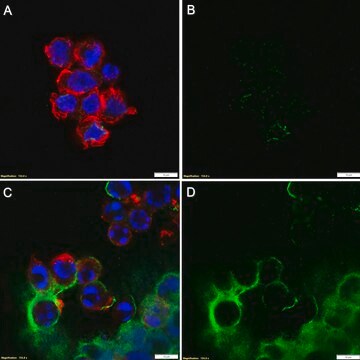Fontos dokumentumok
LM1600
Avanti
13:0 Lyso LPC
Avanti Research™ - A Croda Brand
Szinonimák:
1-tridecanoyl-sn-glycero-3-phosphocholine
About This Item
Javasolt termékek
form
methanol solution
kiszerelés
pkg of 1 × 1 mL (LM1600-1EA)
gyártó/kereskedő neve
Avanti Research™ - A Croda Brand
koncentráció
~10 μg/mL (Refer to C of A for lot specific concentration. )
alkalmazás(ok)
lipidomics
metabolomics
kiszállítva
dry ice
tárolási hőmérséklet
−20°C
SMILES string
O[C@](COP(O)(OCC[N+](C)(C)C)=O)([H])COC(CCCCCCCCCCCC)=O
Általános leírás
Alkalmazás
- lipid extraction from brain tissues
- lipid extraction from macrophages using modified Bligh and Dyer protocol
- liquid chromatography/MS analyses of lysophospholipids
Biokémiai/fiziológiai hatások
Kiszerelés
Jogi információk
gyakran vásárolják ezzel a termékkel együtt
Figyelmeztetés
Danger
Figyelmeztető mondatok
Óvintézkedésre vonatkozó mondatok
Veszélyességi osztályok
Acute Tox. 3 Dermal - Acute Tox. 3 Inhalation - Acute Tox. 3 Oral - Flam. Liq. 2 - STOT SE 1
Célzott szervek
Eyes
Tárolási osztály kódja
3 - Flammable liquids
WGK
WGK 2
Lobbanási pont (F)
49.5 °F - closed cup
Lobbanási pont (C)
9.7 °C - closed cup
Analitikai tanúsítványok (COA)
Analitikai tanúsítványok (COA) keresése a termék sarzs-/tételszámának megadásával. A sarzs- és tételszámok a termék címkéjén találhatók, a „Lot” vagy „Batch” szavak után.
Már rendelkezik ezzel a termékkel?
Az Ön által nemrégiben megvásárolt termékekre vonatkozó dokumentumokat a Dokumentumtárban találja.
Az ügyfelek ezeket is megtekintették
Tudóscsoportunk valamennyi kutatási területen rendelkezik tapasztalattal, beleértve az élettudományt, az anyagtudományt, a kémiai szintézist, a kromatográfiát, az analitikát és még sok más területet.
Lépjen kapcsolatba a szaktanácsadással













